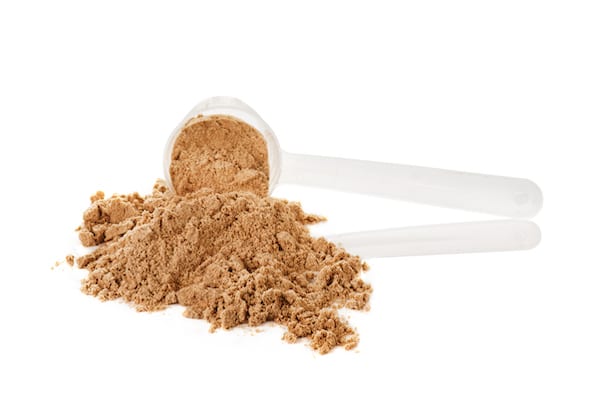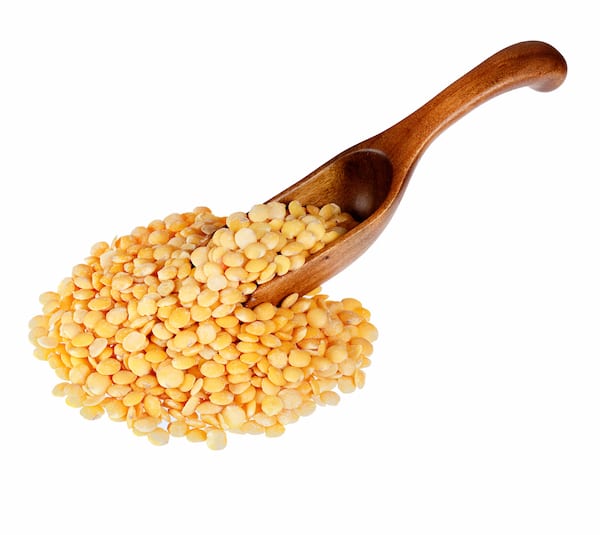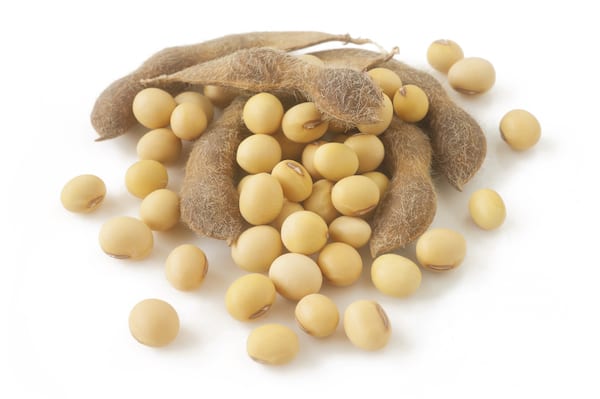
[ad_1]
The variety of plant-based protein powders is consistently growing, which is nice for vegans and vegetarians! However too many choices can result in confusion and indecision. Even in case you handle to drill it down to 2 widespread choices — pea protein vs soy protein — how have you learnt which is finest for you?
You desire a product that tastes good, gives the vitamins you want to your objectives, and received’t trigger any unfavorable unwanted effects. So, that will help you resolve, we examine these two choices so you may decide which can work finest for you.
How Are Pea and Soy Protein Powder Made?
To make protein powder, producers extract the protein content material of meals. Within the case of pea protein and soy protein powder, they mill yellow peas or soy beans respectively and switch them into powder both by dry separation or moist processing strategies, explains registered dietitian and licensed athletic coach Dana Angelo White, MS, RD, ATC.
Dry separation consists of separating the high-quality protein powder from the coarse starch powder, which leads to protein focus. Moist processing entails making a water-based resolution out of the plant protein and operating it by means of a centrifuge, which leads to protein isolate.
The distinction is that isolate is richer in protein with little or no or no carbs or fats, whereas focus has barely much less protein and extra carbs and fats, White explains. Remoted protein is at the very least 90 % protein by weight, whereas focus is at the very least 70 % protein by weight, based on the Meals and Agriculture Group of the United Nations.
Pea Protein Diet vs. Soy Protein Diet
Though precise dietary info will range from model to model, right here’s a take a look at how pea and soy protein powders stack up towards one another.
Fairly related! The largest distinction to notice right here is the kind of protein that every present. Soy is a full protein, whereas pea is an incomplete protein. When a protein is full, it gives all 9 important amino acids in enough quantities.
Can Pea Protein Assist You Construct Muscle?
Despite the fact that pea protein is an incomplete protein, it may possibly nonetheless enable you to construct muscle successfully.
Total, the amino acid profile of pea protein and soy protein is pretty comparable. Based on a 2018 research, each have branched chain amino acids (BCAAs), which assist to construct and keep muscle.
On the whole, your physique wants protein to construct muscle. And analysis exhibits that pea protein could be efficient with serving to to construct muscle, notably due to its excessive leucine content material.
So whether or not you favor pea or soy, you may nonetheless use plant protein powders that will help you attain your objectives.
Pea Protein Aspect Results vs. Soy Protein Aspect Results
Everybody responds to protein powders otherwise, not solely due to the bottom components, however typically additionally due to the opposite potential components, like sugar alcohols, which might trigger bloating.
There is no such thing as a scientific proof that pea protein powder is inflammatory, White says. Some discover pea protein is simple to digest, however so long as you don’t have a soy allergy, most individuals don’t have a tough time digesting soy both, White says.
Then there’s isoflavones. Complete soy has these natural molecules, which can be useful for sustaining well being.
However soy protein powder doesn’t ship many isoflavones. As much as 80 to 90 % of the isoflavones could be misplaced throughout the processing of remoted soy protein.
Which Ought to You Use?
Each pea protein and soy protein are good choices for plant-based protein powders. Nonetheless, pea has barely increased ranges of sure amino acids and a few could discover it simpler to digest.
Soy and pea powders have comparable quantities of protein and fiber, and, except you might be allergic to soy, you don’t need to keep away from it.
“Each are glorious plant-based choices. Everybody tolerates protein powders otherwise, so it comes down to non-public choice and tolerance,” White says.
[ad_2]



